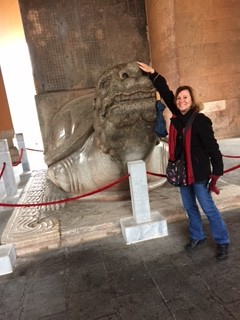 A recent 12-day vacation in China gave me some insight into what’s going on there.
A recent 12-day vacation in China gave me some insight into what’s going on there.
The Great Wall was truly great. And the break from my work routine was very helpful.
The trip also gave me the opportunity to learn a thing or two about business in China.
Internet access
It’s easy to get on the Internet in China. There are a lot of free connections in airports, hotels, and malls.
However, there are considerable restrictions on what you can view online. You cannot use Google, Facebook, Twitter, and many other sites we routinely use for business here; these sites are blocked in China.
There is no blockage for these sites in Hong Kong or Macau, even though these locations are part of China.
Entrepreneurial spirit
The entrepreneurial spirit seems to be alive and well in China. Everyone tries to sell you something, whether it is in a store or on the street. Merchants are prepared to do currency conversions on the spot. Little shops selling everything imaginable line the streets, and many are open well into the evening hours.
In addition, there are several large, upscale malls selling just about every name-brand you can think of. The Global Harbour Mall in Shanghai has 450 stores selling Coach, Gucci, Nike, Prada, and even a Mercedes storefront.
However, many of the products sold (at least on the streets and in small shops) in China are counterfeit, so buyers beware. They look like Michael Kors handbags but they can easily be good knockoffs (I can’t verify this but likely the goods in the big stores are real). U.S. businesses should note that their trademarks and copyrights through the U.S. government are not recognized in China. If such protection is desired, it’s necessary to obtain protections there.
Construction
It is impossible for me to accurately convey the amount of construction that’s going on in the locations I visited: Beijing, Xi’an, Shanghai, Hong Kong, and Macau. There were cranes as far as the eye can see; many were being used to construct massive apartment buildings, 30 stories high or higher. And it’s not a single building; it’s clusters of 20 or more apartment buildings at a clip.
Construction was not limited to creating more housing. Also being built were bridges, tunnels, and roads. In Shanghai, they’re adding terminals and runways to the existing airport.
Traffic
I’ve driven in New York City, Los Angeles, Chicago, Washington DC, and other major cities where traffic is always a problem. Businesses that have to make deliveries in these urban areas face significant challenges. But the traffic here is nothing compared to the traffic in Beijing, where cars, trucks, buses, scooters, bicycles, and pedestrians compete for the road. They drive in all directions at once and make little forward gain.
Final thought
From my brief visit, I have no idea about the status of the China economy. Fourteen economists surveyed by the Wall Street Journal think it’s improving, as compared with its “lackluster showing” in September. As a tourist, what can be seen is limited. But one thing is clear: it’s a state-controlled economy where small business owners are permitted to say and do only what is allowed.


